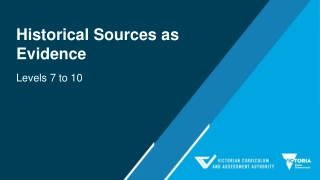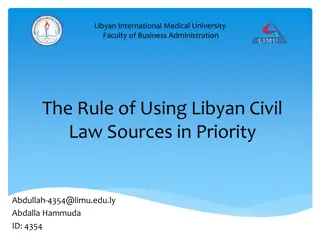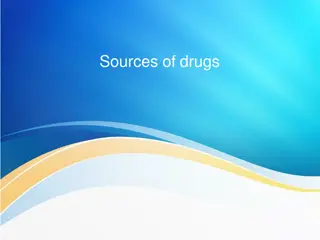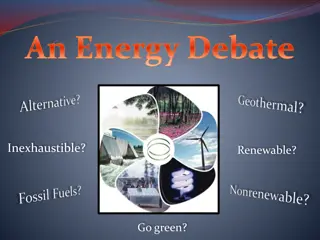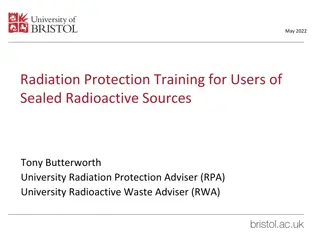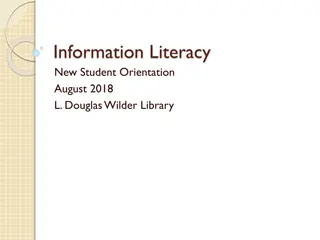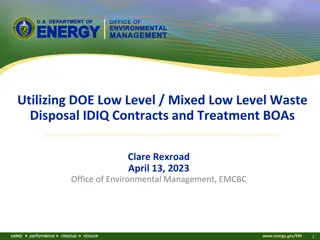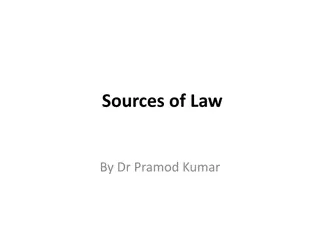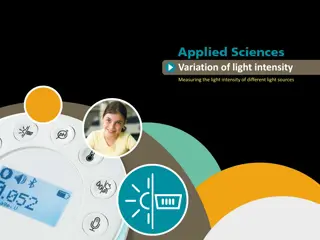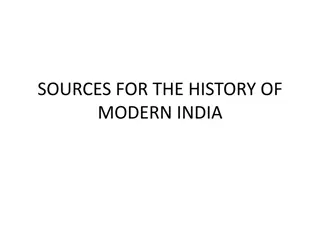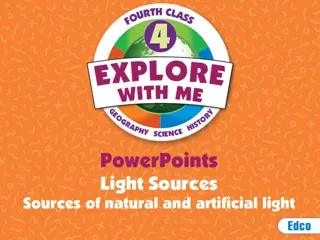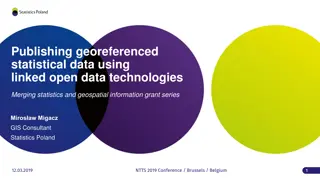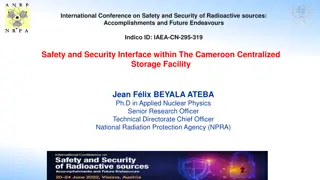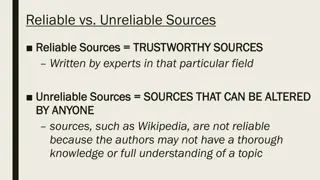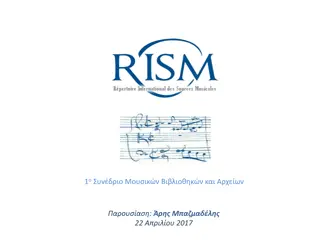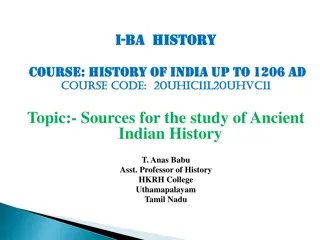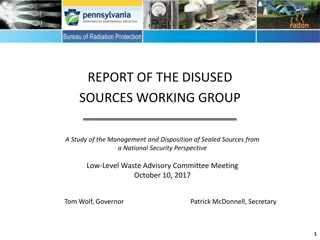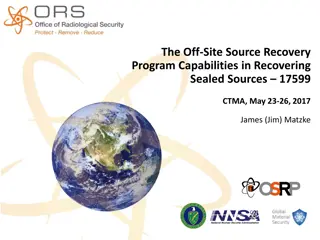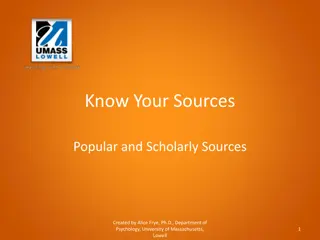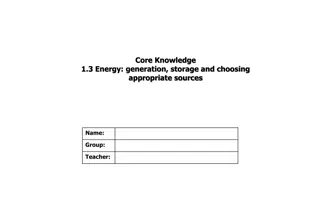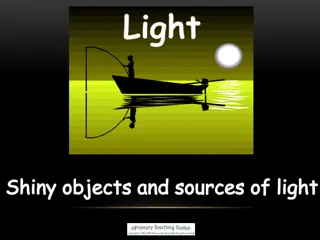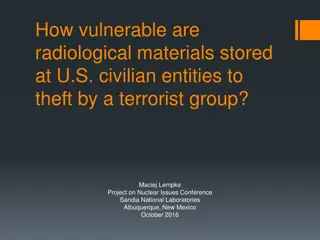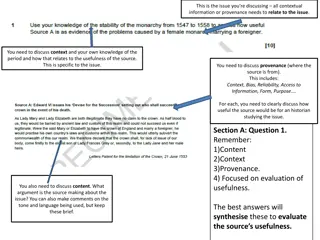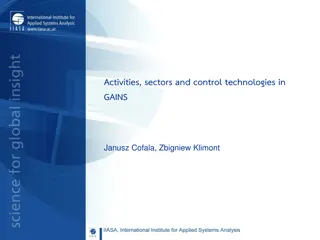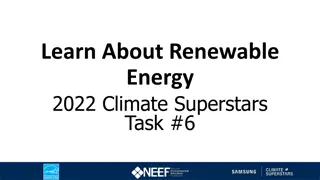Buy Angry Birds Herbal Incense Online — onlineherbalincense.com
\nJust like the cartons \u2013 Angry Birds Herbal Incense. The Incense is pretty much the same with an awesome aroma, high quality, and potent. The smoke it produces when it is burnt is a little thick and refreshing. Angry Birds Incense is a Great Incense and is legal and medically sealed super stro
3 views • 4 slides
Buy Cheap Herbal Incense Sale — onlineherbalincense.com
Buy Cheap Herbal Incense Sale Online. Order affordable Herbal Incense products. Wholesale and Retail, with discreet packaging and worldwide shipping. Like the movies, Alice In Wonderland sees herself change sizes and see herself in a strange place. This Incense will put you in that Fancy place you a
5 views • 5 slides
Historical Sources as Evidence
Explore the importance of historical sources as evidence in the Victorian Curriculum History context, focusing on how students analyze, evaluate, and utilize sources to create historical explanations and arguments. Discover the significance of primary and secondary sources, perspectives of historica
1 views • 46 slides
Understanding Libyan Civil Law: Sources and Application
Civil law in Libya draws influences from Ottoman, French, Italian, and Egyptian sources, with a move towards a legal system based on Sharia. This article discusses the priority of using Libyan Civil Law sources and emphasizes the importance of laws that cater to the wellbeing of its citizens. The so
1 views • 7 slides
Sources of Drugs and Their Origins
Drugs can be sourced from six major categories: plants, animals, minerals/earth, microbiological sources, semi-synthetic sources, synthetic sources, and recombinant DNA technology. Plant sources, being the oldest, provide various medicinal properties through leaves, flowers, fruits, seeds, roots, ba
0 views • 11 slides
Understanding the Debate on Inexhaustible vs. Nonrenewable Energy Sources
The energy debate revolves around the classification of energy sources into nonrenewable, renewable, and inexhaustible categories. Fossil fuels, such as coal, petroleum, and natural gas, fall under nonrenewable sources due to their finite nature, while wind and tidal energy are examples of inexhaust
0 views • 18 slides
Radiation Protection Training for Users of Sealed Radioactive Sources - May 2022
This document provides radiation protection training tailored for users of sealed radioactive sources, ensuring compliance with legislative requirements and university policies. The training covers topics such as ionising radiation, effects of exposure, monitoring requirements, and more. All trainin
0 views • 81 slides
Understanding Information Literacy: A Comprehensive Guide for Students
Information literacy is crucial for academic success. It involves the ability to recognize the need for information, locate relevant sources, evaluate their credibility, and effectively use the information for research and presentations. Primary and secondary sources play a vital role in gathering i
0 views • 19 slides
Understanding the Process of Sealing Criminal Records
Having a criminal record sealed means making it inaccessible to the public while keeping it available to criminal justice agencies. Eligibility for sealing records requires taking action, and not everyone qualifies. This clinic provides guidance on the sealing process and the types of records that c
0 views • 36 slides
Utilizing DOE Low-Level & Mixed Low-Level Waste Disposal Contracts
EMCBC manages disposal and treatment contracts for Low-Level Waste (LLW) & Mixed Low-Level Waste (MLLW). Eligible users include DOE offices, prime contractors, and subcontractors. Services cover various waste types including radioactive materials, sealed sources, and TSCA-regulated waste. Specific c
0 views • 19 slides
Understanding Sources of Law in Legal Systems
Exploring the sources of law, this content delves into the concept of formal and material sources categorized by legal scholars. It examines how legal systems differ in recognizing sources such as precedents, legislation, customs, and treaties. The focus shifts to Indian law, highlighting the signif
1 views • 23 slides
Understanding the Sources of Law: Definitions and Classification
The term "sources of law" refers to the origins from which rules of human conduct derive their legal force and binding character. This concept varies among writers and includes factors like Hindu scriptures, sovereign authority, historical documents, customs, and more. This article explores differen
0 views • 11 slides
Understanding Light Intensity Variation in Different Sources
Explore the correlation between light intensity and efficiency in various light sources through an intriguing experiment. Delve into the theoretical framework and practical applications to grasp the essence of light intensity and its distribution. Uncover the factors influencing the efficiency of li
0 views • 21 slides
Accelerator Technology R&D Targets and Sources Overview
The SnowMass2021 Accelerator Frontier AF7 focuses on Accelerator Technology R&D, exploring targets and sources such as high brightness electron sources, muon sources, and high intensity ion sources. The community planning meeting discussed various Letter of Interest submissions outlining innovative
0 views • 7 slides
Understanding the Sources for the History of Modern India
The sources for the history of modern India encompass literary sources such as printed books, government documents, newspapers, magazines, pamphlets, historical buildings, biographies, and memoirs. These sources provide insights into the political, social, economical, and cultural developments in In
0 views • 9 slides
Understanding Light: Sources and Properties
Light is a vital form of energy that enables vision and is emitted or reflected by various sources. Learn about natural sources like the sun, moon, fire, lightning, and luminous animals, as well as artificial sources powered by electricity. Discover how light waves travel, illuminating our world and
0 views • 18 slides
Guide to Annotated Bibliography: Sources, Evaluation, and Guidelines
Understand the importance of an annotated bibliography, which includes a list of sources with personal commentary. Learn how to summarize, evaluate, and critique sources for academic research. Follow the guidelines to create entries formatted in MLA style and use appropriate sources for your paper.
0 views • 26 slides
Development of Guidelines for Publishing Georeferenced Statistical Data Using Linked Open Data Technologies
Development of guidelines for publishing statistical data as linked open data, merging statistics and geospatial information, with a primary focus on preparing a background for LOD implementation in official statistics. The project aims to identify data sources, harmonize statistical units, transfor
2 views • 31 slides
Safety and Security Measures at Cameroon's Centralized Storage Facility
The Centralized Storage Facility in Cameroon, established to manage disused sealed radioactive sources, incorporates safety and security measures in an integrated manner. The facility consists of ISO containers, alarm monitoring stations, and implements security enhancements based on IAEA guidelines
0 views • 15 slides
Understanding Reliable and Unreliable Sources for Research
Recognize reliable and unreliable sources for research. Reliable sources, such as books and peer-reviewed journals, are authored by experts in the field. Unreliable sources like Wikipedia and blogs can be altered by anyone. Learn how to evaluate the credibility of online sites based on their URLs an
0 views • 10 slides
Citing Sources in Research Papers: A Comprehensive Guide
Learn how to correctly cite sources in a research paper through parenthetical citations and creating a Works Cited page. Understand the importance of giving credit to sources to avoid plagiarism. The guide covers the use of quotations to strengthen your arguments, parenthetical citations from specif
0 views • 6 slides
Understanding Primary and Secondary Sources in Research
Primary sources provide firsthand information from the time period being studied, while secondary sources offer interpretations based on primary sources. Examples of primary sources include autobiographies, speeches, historical documents, published firsthand accounts, and sound recordings. Secondary
0 views • 23 slides
International Inventory of Musical Sources by RISM
Founded in Paris in 1952, the Répertoire International des Sources Musicales (RISM) comprehensively documents existing music sources worldwide. Recognized as the key entity for cataloging music sources globally, RISM's working groups in over 35 countries catalog manuscripts, printed music, writings
0 views • 17 slides
Sources for the Study of Ancient Indian History: Literary and Archaeological Insights
Exploring the diverse sources available for studying Ancient Indian History up to 1206 AD, including literary works such as Brahmanical texts, epics like Ramayana and Mahabharata, Buddhist and Jaina literature, and archaeological sources like inscriptions, coins, and material artifacts. These source
0 views • 21 slides
Disused Sources Working Group Report on National Security Perspective
The Disused Sources Working Group (DSWG) report focuses on managing and disposing of sealed sources to reduce national security risks. Formed in 2011, DSWG developed recommendations to enhance the management of disused sealed sources. The report categorizes sealed sources based on potential harm and
0 views • 15 slides
Understanding Indoor Air Pollution: Sources, Impacts, and Control Measures
This study explores the sources and influencing factors of indoor air pollution, highlighting the importance of studying indoor air quality due to its critical impact on human health. It discusses the various pollutant categories from different sources such as outdoor elements, indoor sources, furni
0 views • 17 slides
Understanding Archives and Primary Sources in Research
Explore the meaning of archives, examples of archival sources, the distinction between primary and secondary sources, and how researchers locate archival materials. Delve into the significance of primary sources in research and personal life.
0 views • 14 slides
Overview of Off-Site Source Recovery Program Capabilities
The Off-Site Source Recovery Program (OSRP) aids in recovering radioactive sealed sources for national security and public health. OSRP focuses on recovering TRU and non-TRU sources, with over 38,500 sources retrieved globally. Services include source registration, consultancy, and training for vari
0 views • 25 slides
Understanding the Importance of Sources in Psychology
Delve into the significance of differentiating between popular and scholarly sources in psychology to enhance research accuracy and reliability. Learn to discern between credible sources and the importance of referencing original sources for accurate information.
0 views • 18 slides
Understanding Energy: Sources, Generation, and Storage
Explore the fundamentals of energy sources, conversion methods, advantages, and disadvantages of non-renewable and renewable sources. Delve into topics such as coal, oil, gas, biomass, solar, wind, and more. Understand the National Grid, power systems, and considerations when selecting energy source
0 views • 6 slides
Understanding Dry-Type Transformers: Classification and Maintenance
Dry-type transformers come in ventilated, non-ventilated, and sealed units, each with specific construction features and maintenance requirements. Ventilated transformers allow air circulation, non-ventilated operate in a sealed enclosure, and sealed units are self-cooled. Regular checks are essenti
0 views • 35 slides
Understanding Sources of Light and Reflection
Exploring the concept of light sources and reflection, the article delves into how light is created by various objects like the sun, light bulbs, and fires. It explains the difference between sources of light and objects that reflect light, such as shiny metal surfaces. The reader is encouraged to i
0 views • 14 slides
Effective Safety and Security Systems for Disused Sealed Radioactive Sources in Ghana
Ghana has benefited from the peaceful use of sealed radioactive sources in various sectors. The establishment of safety measures, security systems, and knowledge management for disused sealed radioactive sources (DSRS) is crucial. Challenges and future projections in this area are discussed, emphasi
0 views • 15 slides
Vulnerability of Radiological Materials to Theft by Terrorist Groups in US Civilian Entities
The vulnerability of radiological materials stored at US civilian entities to theft by terrorist groups, particularly low-activity sources, remains a significant concern. Security measures primarily focus on high-activity sources, leaving lower activity sources neglected and highly susceptible to ex
0 views • 16 slides
Evaluating Sources on Female Rule in the 1550s
This analysis focuses on assessing the reliability and usefulness of historical sources discussing the issue of female rule in the 1550s. It evaluates the content, provenance, and context of the sources to determine their relevance for historians studying the topic. The sources provide insights into
0 views • 8 slides
Activities, Sectors, and Control Technologies in GAINS Research
The GAINS research by Janusz Cofala and Zbigniew Klimont focuses on aggregation criteria for emission sources, macroeconomic parameters such as population and GDP, aggregation of energy-related sources, transport sources, and process sources. It also covers specific VOC processes/sources like solven
0 views • 13 slides
Raw Materials in Industrial Fermentation Processes
Microorganisms utilized in industrial fermentation require essential raw materials such as water, energy sources, carbon, nitrogen, mineral elements, and sometimes vitamins and oxygen. Various raw materials like cane molasses, beet molasses, cereal grains, starch, glucose, and lactose serve as carbo
0 views • 15 slides
Understanding Renewable Energy and its Benefits in 2022
Renewable energy sources like wind, waves, tides, sunlight, geothermal heat, and biomass play a crucial role in combating climate change by reducing greenhouse gas emissions. This task educates about the differences between renewable and non-renewable energy sources, the benefits of renewables, and
0 views • 10 slides
Regulatory Evolution of Radioactive Materials Licensing
The regulatory landscape surrounding Naturally Occurring and Accelerator-Produced Radioactive Materials (NARM) underwent significant changes in the 20th century. Various entities, including AEC/NRC and states, grappled with the regulation of NARM, leading to a lack of consistency. Initiatives such a
0 views • 17 slides
Financial Decision Making and Short-Term Financing Options
The availability of resources for a company depends on its current cash position and the ability to acquire additional funding. In making financial decisions, management should review profitability, forecast cash needs, and explore methods of obtaining additional funds through short-term or long-ter
2 views • 17 slides


